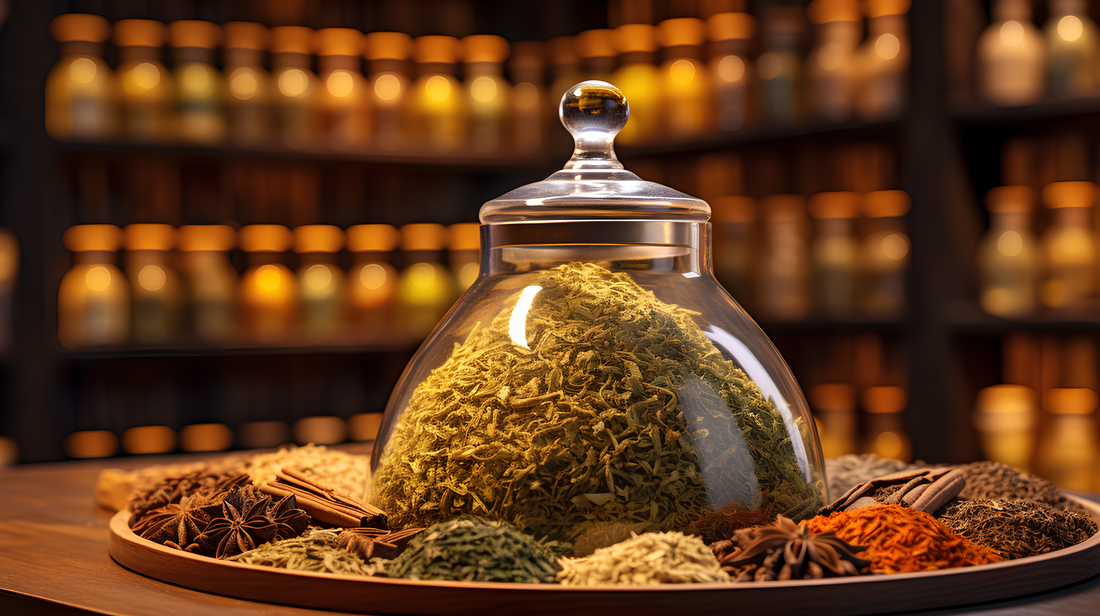Magnesium Bisglycinate has become increasingly popular in recent years due to its numerous health benefits, such as supporting muscle function, improving sleep quality, and reducing anxiety. Although this supplement may offer excellent benefits, there are also Ayurvedic alternatives that provide similar advantages through natural means. In this blog, we will explore the primary benefits of Magnesium Bisglycinate and the Ayurvedic herbs that can offer those exceptional benefits.
Understanding Magnesium Bisglycinate
Magnesium Bisglycinate is a highly bioavailable form of magnesium, an essential mineral known for its various health benefits. Given its importance, many people turn to Magnesium Bisglycinate supplementation in order to maintain proper magnesium levels. Some of the main benefits associated with Magnesium Bisglycinate are:
- Muscle Function: Magnesium is crucial for maintaining healthy muscle function; it helps in muscle contractions and relaxation.
- Sleep Quality: Magnesium is known for its calming effects, and it helps promote restful sleep by activating the parasympathetic nervous system.
- Anxiety Reduction: Magnesium supplementation has been linked with reduced anxiety and stress levels by supporting neurotransmitter function in the brain.
Now let's dive into Ayurvedic herbs that can provide the same benefits offered by Magnesium Bisglycinate.
Ayurvedic Alternatives
1. Ashwagandha (Withania somnifera)
Ashwagandha is a powerful adaptogenic herb that has been used in Ayurvedic medicine for centuries to treat a variety of ailments. This herb is known to support muscle function as it enhances muscle strength and mass. Moreover, Ashwagandha is recognized for its sleep-enhancing qualities; the compound 'triethylene glycol' found within it is responsible for promoting restful sleep. Lastly, Ashwagandha is also very effective in reducing anxiety and stress due to its ability to regulate cortisol levels.
2. Brahmi (Bacopa monnieri)
Brahmi is another highly revered Ayurvedic herb known for its ability to enhance cognitive functions and provide relief from anxiety and stress. It works by modulating key neurotransmitters in the brain, which has a calming effect on the nervous system. While it may not have direct ties with muscle function, Brahmi's calming properties can help facilitate better sleep quality, supporting overall well-being.
3. Shatavari (Asparagus racemosus)
Shatavari is often considered a natural Ayurvedic alternative to magnesium because of its multiple benefits, including supporting muscle function and strength. Aside from that, Shatavari is also known for its adaptogenic qualities that help the body cope with stress, thus contributing to reduced anxiety levels.
Final Thoughts
While Magnesium Bisglycinate may be an effective way to support certain aspects of one's health, Ayurvedic alternatives offer natural and holistic solutions with similar benefits. Ashwagandha, Brahmi, and Shatavari all provide unique advantages that promote better muscle function, sleep quality, and anxiety reduction. By incorporating these Ayurvedic herbs into your daily routine, you can potentially improve your overall well-being without relying on synthetic supplements. However, as with any change in supplementation, it's crucial to consult a healthcare professional before making significant changes to your regimen.

